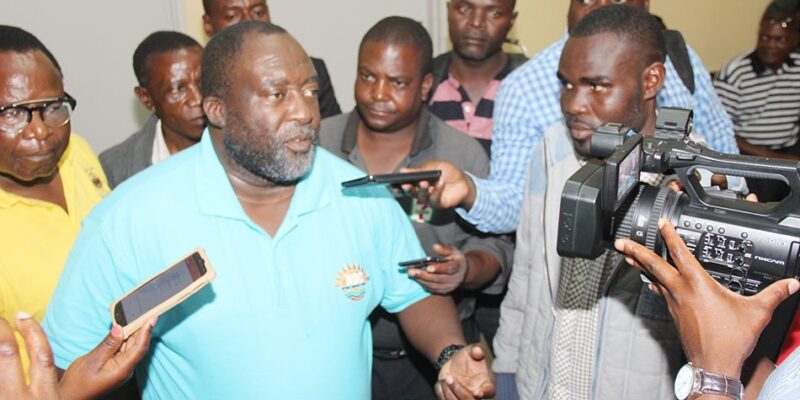Nigeria’s President Bola Tinubu has approved a new National Policy on Health Workforce Migration aimed at arresting the recurring incidents of brain drain by medical experts, as well as address the challenges facing Nigeria’s health human resources.
Coordinating Minister of Health and Social Welfare, Prof Muhammad Pate, who revealed this on Monday, said the policy would be more than just a response to the exodus of healthcare professionals but a comprehensive strategy to manage, harness, and reverse healthworker migration.
“This afternoon, HE President Bola Ahmed Tinubu, GCFR @officialABAT, in-Council, approved a landmark policy set to transform healthcare human resource management in Nigeria,” Pate wrote on his X handle.
“The National Policy on Health Workforce Migration addresses the critical challenges facing Nigeria’s health human resources.
“As the AU Champion for Human Resources for Health and Community Health Delivery Partnership, Mr President’s commitment to a resilient and robust healthcare system is powerfully reflected in this forward-looking policy.
“This policy is more than just a response to the ongoing exodus of healthcare professionals; it’s a comprehensive strategy to manage, harness, and reverse health worker migration. It envisions a thriving workforce that is well-supported, adequately rewarded, and optimally utilised to meet the healthcare needs of all Nigerians.”
Pate emphasized that central to the vision of President Tinubu is the Nigeria Human Health Resource Programme, which sets a framework for regular reviews of working conditions, ensuring that health workers, especially in rural and underserved areas, receive the recognition and rewards they deserve.
“By fostering an environment conducive to professional growth and stability, the policy aims to retain top talent within Nigeria.
“In an increasingly digital world, integrating advanced health technologies is essential. The policy’s focus on digital health infrastructure including Electronic Medical Records, telehealth, and a comprehensive Health Workforce Registry, which marks a significant step towards a more efficient, data-driven health system.
“These innovations will streamline healthcare delivery and enhance the equitable distribution of health workers, ensuring access to quality care for all Nigerians.
“Capacity building is at the heart of this policy. It recognises the importance of continuous professional development, with strategic partnerships and opportunities for international training to equip our healthcare professionals with cutting-edge skills.
“This investment in human capital underscores our commitment to retaining and empowering our healthcare workforce,” he said.
The Minister further stressed that the policy will also address the return and reintegration of Nigerian health professionals from the Diaspora.
“This approach leverages the expertise of our diaspora to bridge gaps within the health sector. Also, the policy champions reciprocal agreements with other nations to ensure that the exchange of health workers benefits Nigeria.
“These bilateral and multilateral agreements are designed to protect national interests while respecting the rights and aspirations of our healthcare professionals. We call on recipient countries to implement a 1:1 match—training one worker to replace every publicly trained Nigerian worker they receive.
“Recognising the importance of work-life balance, the policy includes provisions for routine health checks, mental well-being support, and reasonable working hours, especially for younger doctors. These measures aim to create a supportive work environment, reducing burnout and enhancing job satisfaction.
“The governance of this policy will be overseen by the National Human Resources for Health Programme within @Fmohnigeria, in collaboration with state governments. This ensures responsible implementation and alignment with broader sector-wide health objectives.
“With this decisive action, the National Policy on Health Workforce Migration is set to secure the future of Nigeria’s healthcare system.
“Under Mr President’s leadership, this policy will further catalyse the transformation of our health sector, ensuring access to quality healthcare for all Nigerians.
“As we embark on this journey, all stakeholders are invited to contribute to building a healthcare system that reflects our nation’s potential and promise,” Pate noted.
Healthcare experts believe that the document, if properly implemented and harnessed, would go a long way in addressing the incessant cases of many Nigerian healthcare workers leaving the country for greener pastures in what is popularly called the “Japa Syndrome”.
According to the fleeing health workers, the push factors for the decision include poor remuneration and salary structure, inadequate equipment, worsening insecurity, poor working conditions, and a host of other impediments to the practice of their profession.

 Sports2 days ago
Sports2 days ago
 Metro2 days ago
Metro2 days ago
 Metro1 day ago
Metro1 day ago
 Culture2 days ago
Culture2 days ago































